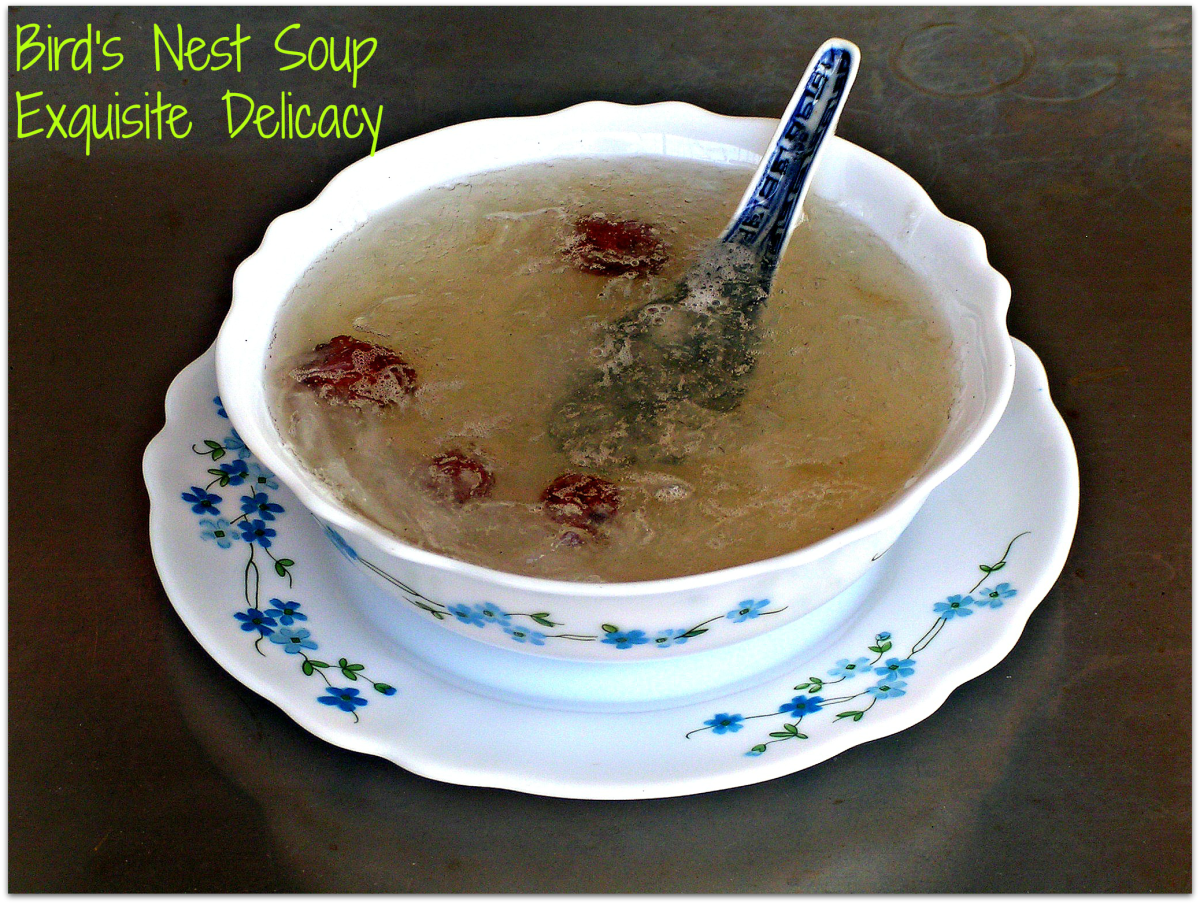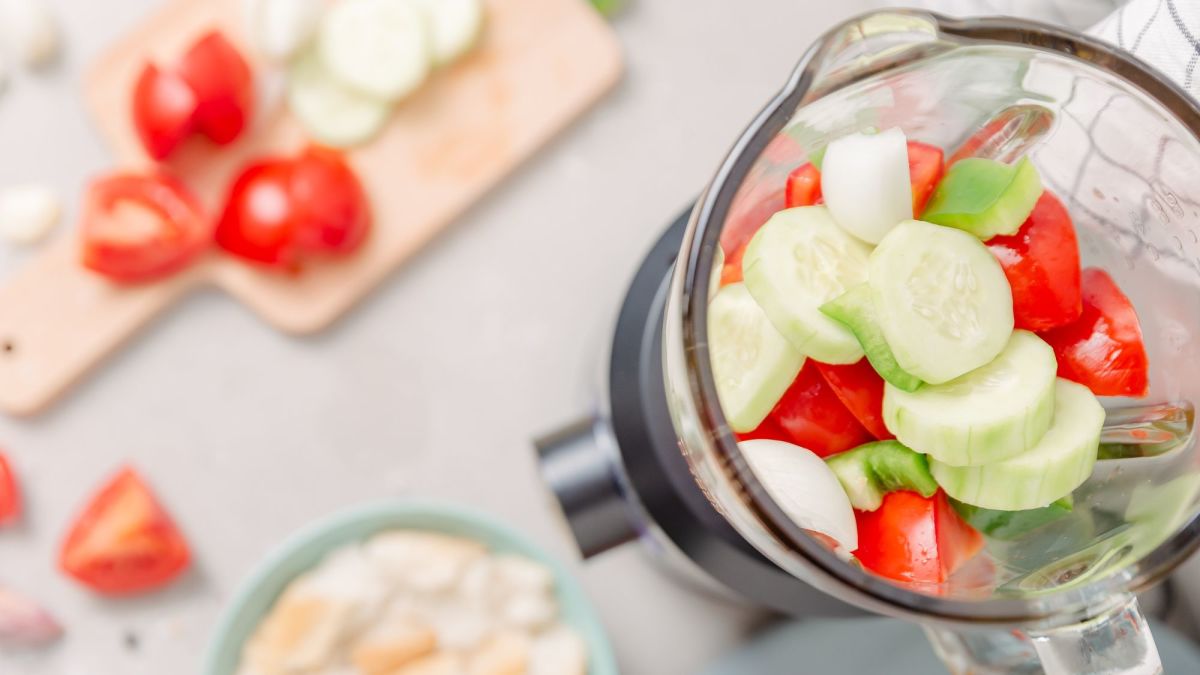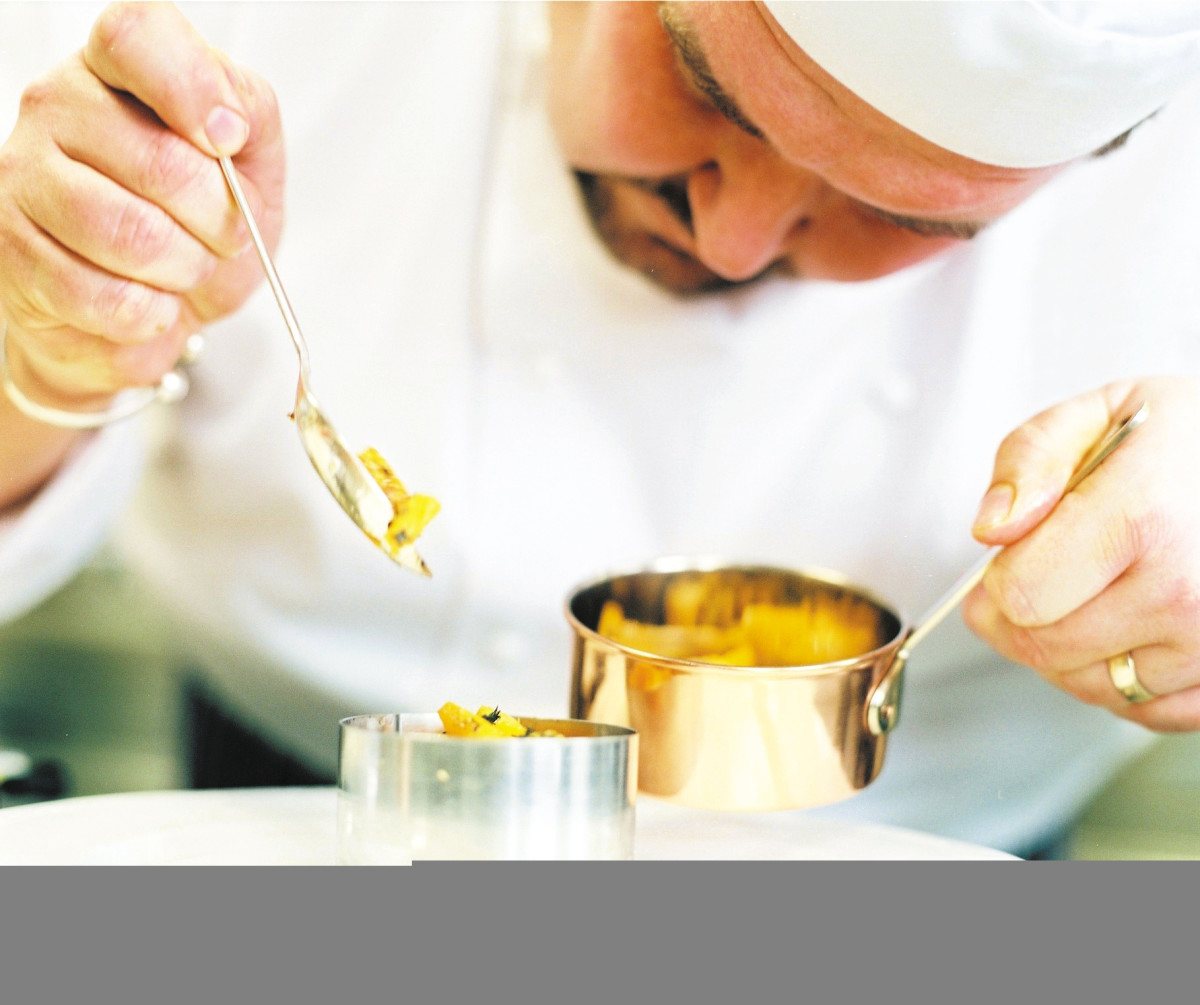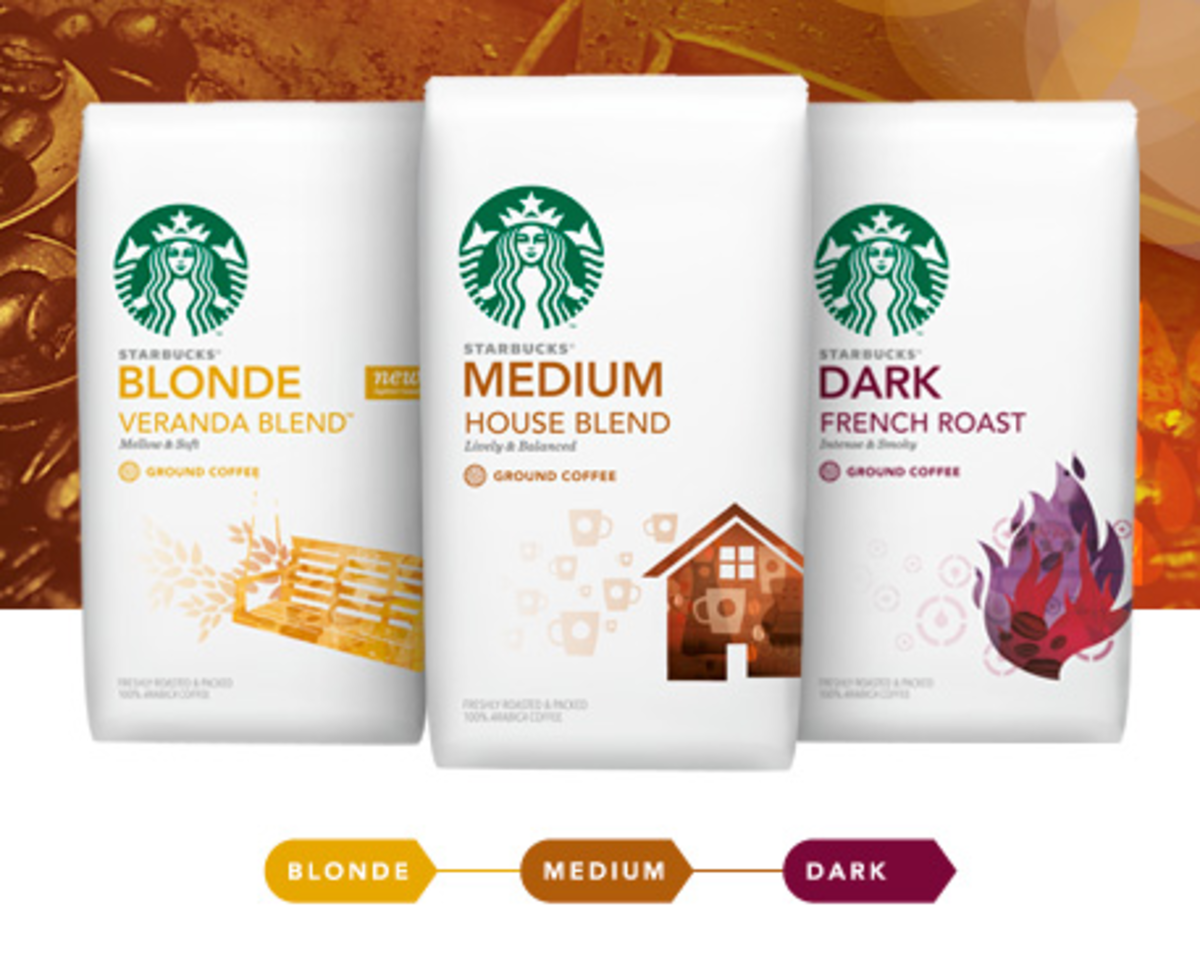How to Make a Spicy Edikaikong Soup- a Nigeria Delicacy
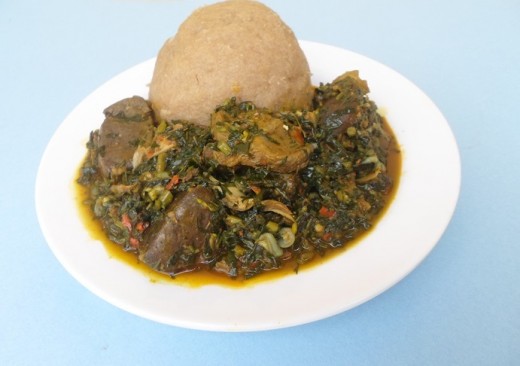
Hello dear and welcome to another exciting edition of my food recipe which happens to be another soup. If you love soups like me, you will agree with me that soups are similar to stews, and in some cases there may not be a clear distinction between the two. However, soups generally have more liquid than stews in Western world but in Africa it is completely the opposite.
So, today we shall be looking at another made in Africa soup called Edikang Ikong (Edikangikong). This soup is a Nigerian vegetable soup which is also very popular amongst Nigeria people. It is very delicious when you taste a properly prepared one and it is also very unique, widely eaten by many because of its high medicinal and nutritional value. It is common for Nigerians to request this soup recipe during or after recovery from illness as it is believed to replenish whatever was lost during the sickness. While others believe that it is the best known source of vitamins.
Since Nigeria is the most populated black nation in the world with over 160 million people and an estimated 300 different ethnic groups and language, it’s very obvious that one should expect to see a lot of different food delicacies especially soups. This vegetable soup as I was told by my grandmother originated from southern Nigeria as it is very common with the Efik ethnic group who can be predominantly found in Akwa-Ibom and Cross River States of Nigeria. It is also popular and can also be found among the Ibo people (one of the three major tribes in Nigeria) of south-eastern Nigeria who call it Ugu soup.
The soup is made with the combination of two leaves, the fruited pumpkin leaves and waterleaf. So, apparently the name of the soup was derived from the name of the local leaves used to prepare it, called Edikang-Ikong by the Efiks, while the Ibos call it Ugu.
So to make a very thick and spicy Edikang-Ikong soup there are some few mistakes you should never make;
1) Never add the two vegetables together at the same time or in a quick succession.
2) Add the water-leaf first to leach out its water content before introducing the Ugu leaves to mop up some of the water. But in the absence of fruited pumpkin leaves and water leaves, Spinach and Lamb lettuce/Mache (Valerianella locusta) can be used.
3) Do not use blended pepper and tomatoes together otherwise you are already making another soup entirely.
Do you like to have a taste of Edikang-Ikong Soup?
If you are a foreigner and you have never seen or eaten periwinkles before, this soup offers you a chance to do so. When next you take a holiday trip to Nigeria, just try to have a meal of this soup. You can purchase already-cleaned periwinkle from most Nigerian market.
Cook Time
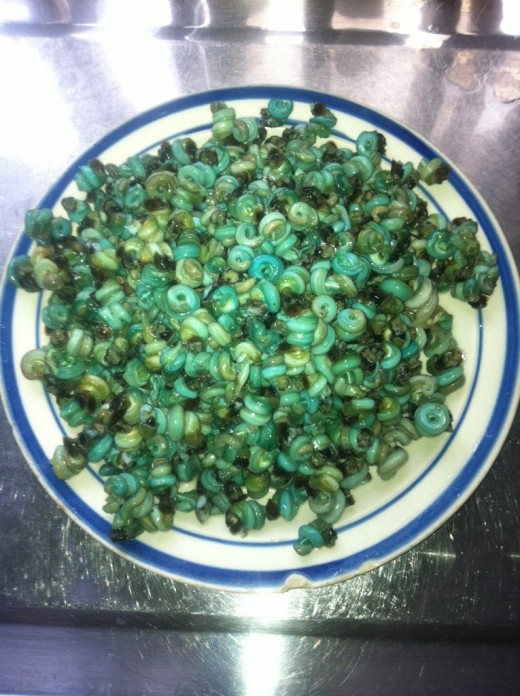
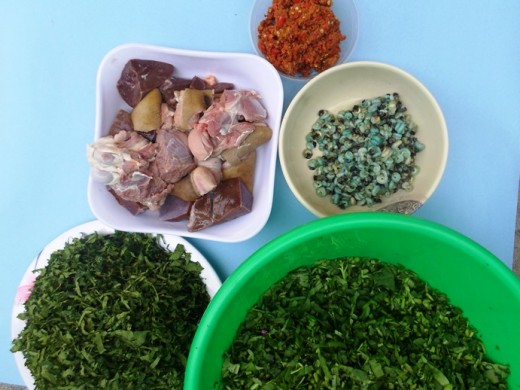
Ingredients
- 5 Cups Water
- 3 tablespoons Grinded Crayfish
- 2 medium size Smoked fish
- 8 medium pieces Meat (Cow or goat)
- 6 medium pieces Cow Skin (Kpomo)
- 2 small size Stockfish, mashed
- 3 cooking ladle Palm oil
- 3 medium size Fresh pepper, chopped
- 4 cubes Maggi (or knorr), spicy
- 4 medium bunch Pumpkin vegetable leaves ( called Ikong Ubong or Ugu)
- 2 medium heap Water leaves
- 2 small bulbs Onions, sliced
- 1 tablespoon dry pepper, grinded
- Salt, to taste
- 1 cup Periwinkles (optional)
So the following are methods used in preparation, here we go:
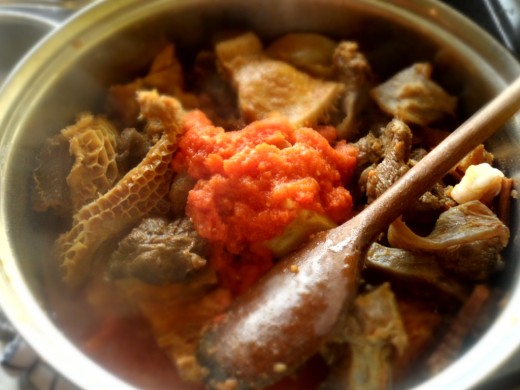
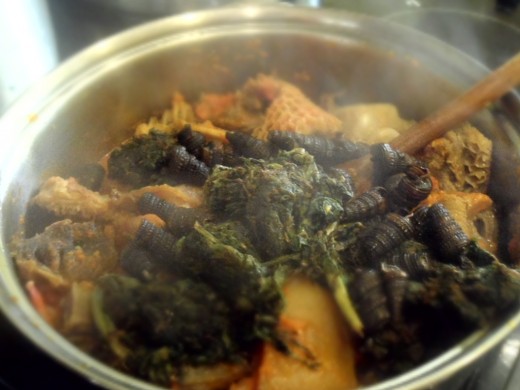
- Wash and shred the fruited pumpkin leaves and waterleaves into tiny pieces. Put them in separate sieves to drain out all the water as much as possible and set aside.
- Wash and cut the assorted meat in bite-able sizes. Also wash the periwinkles, dried fish and stock fish to remove dirts and set aside.
- Season the meat, cow skin (kpomo or kanda) with salt, a Maggi cube, few slices of onions and steam with washed stockfish and watch closely till the juice dries up.
- Add the crayfish, washed smoked fish and pepper to the pot containing the meat, stockfish and cow skin (kpomo), cook for ten minutes
- Add two cooking ladlespoon of red palm oil into the pot of soup and allow boiling until the red palm oil dissolves well into the stockfish .
- While the soup is still boiling add the remaining Maggi cube with two tablespoon of grinded pepper to make more spicy and hot;
- Then add the periwinkle and shredded waterleaves, and stir. At this stage it will look as if the waterleaves has covered the whole pot, don’t worry just stir and cover the pot to cook for about five minutes. The steam will definitely soften and reduce the size of the waterleaves in the pot.
- Now add the shredded pumpkin (Edikangikong) leaves and salt to taste.
- Stir the contents of the pot properly well and cover the pot to simmer for about five minutes on low heat.
- Remove from heat and we are done! Yes, you have just made a delicious and spicy edikangikong soup and you can serve with cassava fufu or eba, wheat meal, semolina or pounded yam.
Videos aid in quick learning and things learnt through video are not easily forgotten. Most people learn faster with videos so I also included a video on making Nigerian Edikaikong soup, you will also learn about all the ingredients used in making this soup. Watch the video below;

Health Benefits of Edikaikong soup
1) A strong evidence shows that the vegetables in Edikaikong soup contains plenty of fibre (commonly referred to as roughage) which potentials to lower risk of heart disease, stroke, type 2 diabetes and bowel cancer
2) Edikaikong soup has been found to contain a high source of energy due to the content of beef
3) The meat used in Edikaikong soup increases the production of red blood cells that prevents the occurrence of anemia (a condition that develops when your blood produces a lower-than-normal amount of healthy red blood cells)
4) Eating a delicious Edikaikong soup serves as a good source of with amino acid content which helps to overcome stress and improves physical activities for good mental health.
Most young and upcoming chefs from Southern part of Nigeria have used different approach in preparing the Edikang Ikong soup. In fact, so many has mistaken the soup to be the popular Afang soup which also originates from the same Cross River and Akwa Ibom States in Nigeria. But the major difference between the later and the former is that the later is a bit drier than the former.
In some homes in Nigeria it is often part of a culture. Therefore, to ascertain if a young lady can make a good wife material she would be measured by how efficient she prepares some of the local food delicacies such as Edikang Ikong Soup.
| Nutrition Facts | |
|---|---|
| Serving size: 253g | |
| Calories | 84 |
| Calories from Fat | 9 |
| % Daily Value * | |
| Fat 1 g | 2% |
| Saturated fat 0 g | |
| Carbohydrates 15 g | 5% |
| Sugar 5 g | |
| Fiber 3 g | 12% |
| Protein 3 g | 6% |
| Cholesterol 0 mg | |
| Sodium 491 mg | 20% |
| * The Percent Daily Values are based on a 2,000 calorie diet, so your values may change depending on your calorie needs. The values here may not be 100% accurate because the recipes have not been professionally evaluated nor have they been evaluated by the U.S. FDA. | |
This content is accurate and true to the best of the author’s knowledge and is not meant to substitute for formal and individualized advice from a qualified professional.
© 2015 Factable News

